Media
with a Year Abroad
Explore media in all mediums and lead discussions about how the media shapes our world today.
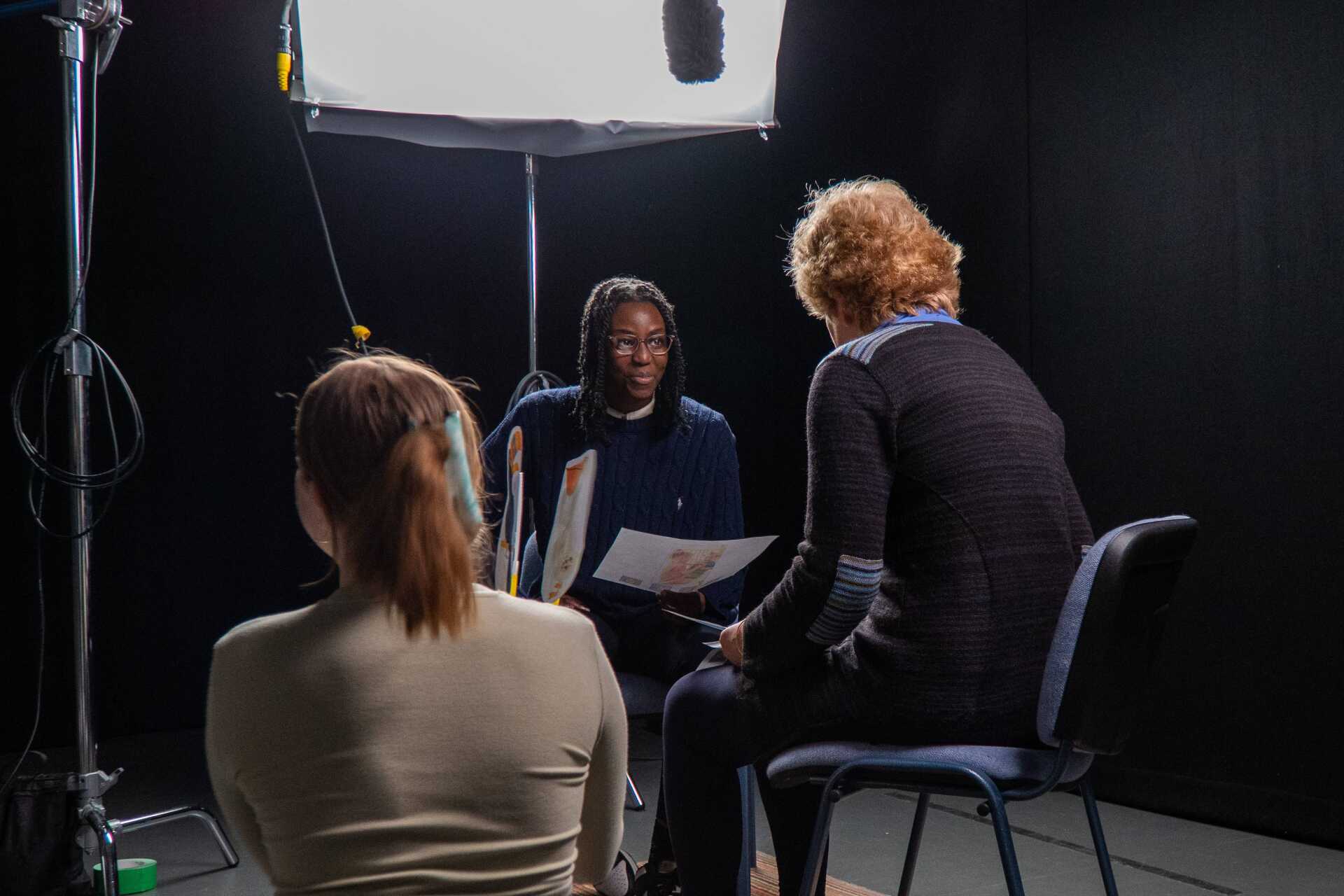
Explore media in all mediums and lead discussions about how the media shapes our world today.
As media expands, the world shrinks. Interconnectedness is more important than ever.
On our BA Media course you’ll examine how media in all forms - spoken and written words, television and music, drawing and animation – creates meaning and how media, across these mediums, can be used to broadcast a wide range of messages for different purposes. Our wide range of modules means you develop analytical and practical skills and with access to our industry-standard resources, you can create work of your own. You'll have the option to choose modules outside of your degree to match your interests.
You're taught by practitioners and researchers who contribute to contemporary debate through their publications and frequently appear on national news and television. This active involvement means our academics keep you in touch with a rapidly changing and expanding industry.
Your year abroad takes place between your second and final year of study; you can either study at a partner institution or work. It's a great opportunity to discover a new culture. Your confidence will grow and you'll also demonstrate to employers that you have the drive to succeed in new environments.
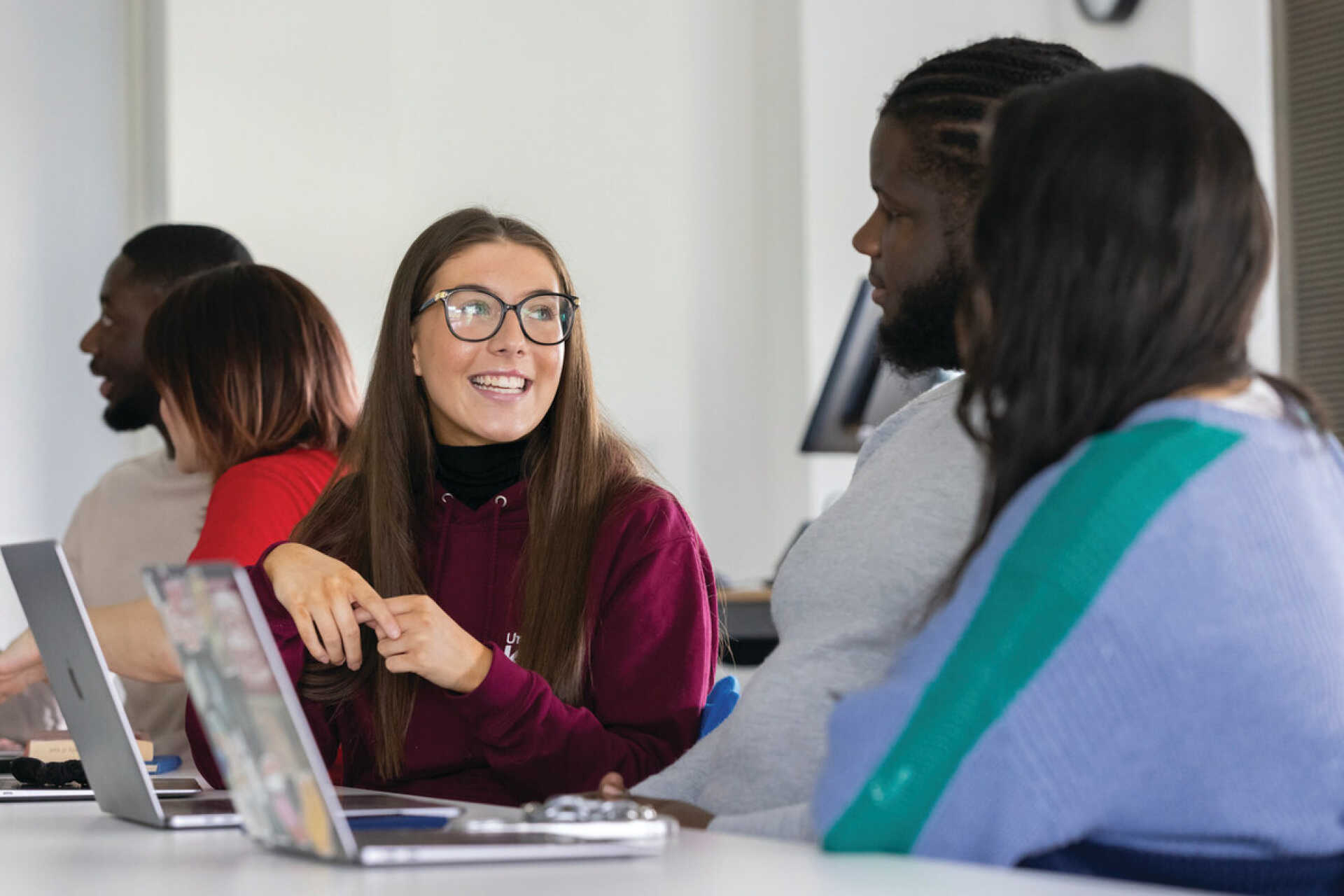
From social media to celebrity culture, podcasting to promotional media and medium to message, you can customise you degree to explore your passions.
We're ranked 6th for graduate prospects in The Complete University Guide 2023.
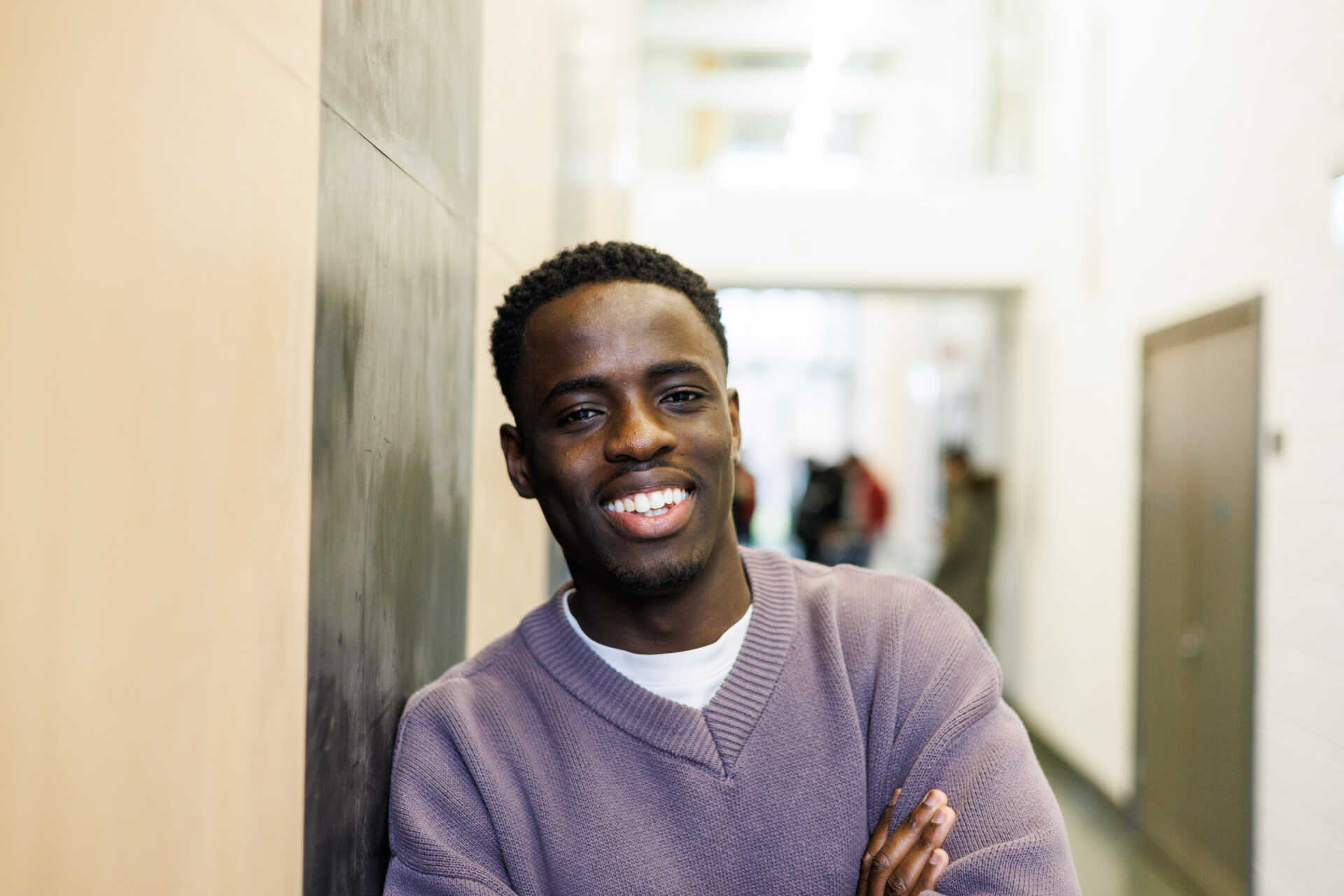
Discover how Media graduate Seun Odubade enjoyed studying at Kent and how the support he received and skills he gained helped kick-start his career.
Meet industry professionals and make key contacts in organisations such as the BBC and The Guardian at careers events, seminars and conferences.
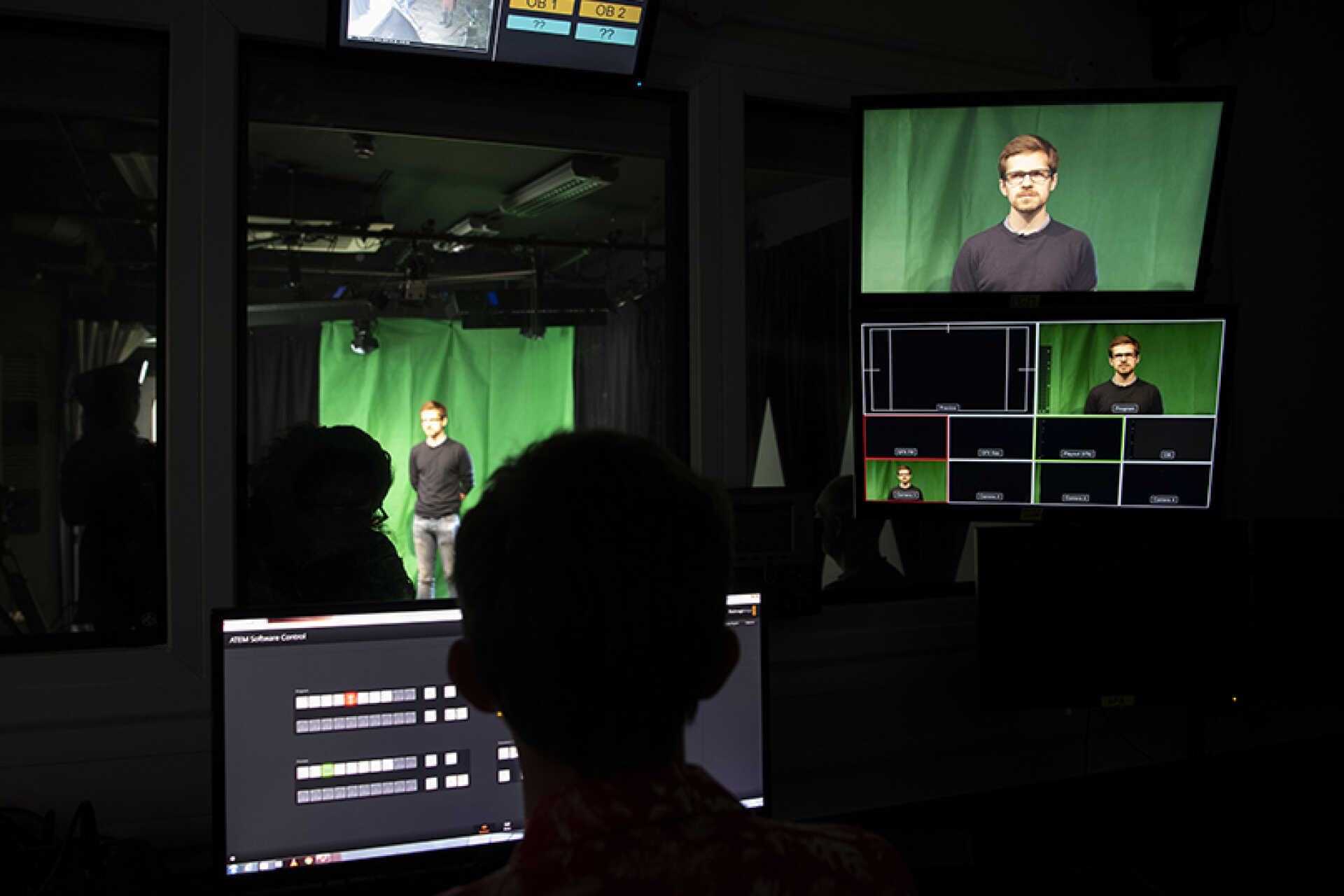
Outstanding resources include a production hub, cameras and sound recording equipment, video and editing stations and access to Adobe Creative Cloud.
Our typical offer levels are listed below and include indicative contextual offers. If you hold alternative qualifications just get in touch and we'll be glad to discuss these with you.
BBB
DMM
120 tariff points - typically H5 H6 H6 or equivalent.
Pass the University of Kent International Foundation Programme.
The University will consider applicants holding T level qualifications in subjects closely aligned to the course.
Obtain Access to Higher Education Diploma with 45 credits at Level 3 with 24 credits at Distinction and 21 credits at Merit.
The following modules are offered to our current students. This listing is based on the current curriculum and may change year to year in response to new curriculum developments and innovation:
In your first year, you cover media and meaning, media identity and diversity, media power and/or making media (i.e. a practical introduction to media content creation). This gives you a solid grounding in the subject and introduces you to some of the most pressing issues in contemporary media culture and the creative industries.
This module introduces students to the ways in which various media create and communicate meaning. The primary focus will be upon a range of key forms across the historical continuum of media practice. These trends will span both traditional and new forms of media content, such as print, radio, television, the Internet and user generated content. Media are therefore studied in this module as processes of transmission that shape and constrain narrative forms, aesthetic shapes, and communication uses, producers and users.
Marketing helps firms effectively reach and communicate with their target customers, creating the brand awareness, engagement, satisfaction, and loyalty that is vital for sales growth in competitive and dynamic markets. On this module, we'll explore the foundational concepts of marketing, looking at how firms develop and implement effective marketing plans and strategies as well as exploring how key elements of the marketing mix can be used to create and communicate a distinctive value proposition that helps a product or service stand out from the competition. By learning how to implement ethical and effective marketing strategies and programmes you’ll gain the skills needed to help businesses succeed in promoting their brand, interacting with customers and building the brand loyalty that is crucial for customer acquisition and retention.
This module draws upon concepts in Media Studies to inform an introduction to moving image production. The module explores various forms of screen culture - from cinema, to television, to content creation in the digital age. Basic technical skills in production and post-production are taught along with craft skills applicable to narrative and factual screen production. Through a combination of lectures, screenings, creative and technical workshops this module encourages critical reflection, independent thought, and dialogue between media theory and practice. Practical work is designed to trigger both conceptual and creative thinking as well as consideration of audience responses to moving images and visual narratives. The production report, a critical analysis of the finished film, is designed to encourage a dialogue between theory and practice.
Media are indispensable tools for businesses and organisations in the creative industries to create awareness and promote themselves and their products. The introduction of new digital media in the last quarter century has altered the shape and forms of these promotional tools, e.g., paid social media, transmedia merchandising, influencers or product placement. This module provides an introduction to the promotional media and their key current forms, specifically focussing on different types of public relations, marketing and advertising practices in the media and culture industries. Alongside theoretical reflection and the critical analysis of key case studies, students will apply their knowledge about promotional media in their own independent projects.
This introductory module examines the concept of 'identity' and ‘diversity’ through the prism of cultural capital and media presentation. Students will be introduced to key concepts and theories surrounding issues of gender, class, race, ethnicity, sexuality, political identity, sports identity, and diversity. These topics are considered through a series of case studies that may include theories of media stereotypes, high and low culture, consumption society, identity politics, cultural production, subculture and style, and media pluralism. Students will be asked to consider the role that media processes play in constructing identity, diversity, and community, inclusion and exclusion.
You have the opportunity to select elective modules in this stage.
The second year of your degree builds on the first. You take a module on media ethics and choose from a huge range of modules, covering everything from podcasting, gender and digital culture, social media, digital storytelling, to photography and arts criticism, screenwriting and curating. You can also study modules from other subjects, such as film, drama and theatre, art history, literature, history, philosophy, politics and sociology.
This module seeks to investigate some of the most pressing ethical issues in contemporary media culture and the mediated arts. Topics may include: violence in video games, nudity on the screen and in advertising, anti-heroes and villains in fiction, propaganda and manipulation, sexism and racism in humour, shock value in the news and in contemporary art. To answer the many moral questions that arise in this context students will examine basic notions such as truth, objectification, voyeurism, exploitation, offence, harm, gender, and stereotype.
The art historian Aby Warburg – an avid reader of Thomas Carlyle's philosophical novel about clothes Sartor Resartus (1836) – said that a good costume, like a good symbol, should conceal as much as it reveals. This module will take an interdisciplinary approach to the study of costume and fashion – the art that can be worn – in order to explore their roles in drama, film and the visual arts. The social values encoded by clothes, their relation to class or sexual identity, will be discussed, along with how these assumptions inform the use of costume in adaptations or stagings of texts, or how they colour our view of a character, or of a director’s interpretation (for example, using deliberate anachronism). The role of clothing and costume in the history of art will be analysed from artists’ representation of clothes, contemporary or otherwise, to their involvement in fashion design.
This module will look at disability in the arts, covering theatre, film and visual art. The students will engage with the historical representation of disability within the arts and the way in which disability scholars have critically engaged with it. The students will also look at arts institutions (i.e. theatres, cinemas and galleries) and the disabling barriers within those institutions that prevent the full participation of people with impairments in the arts. This will culminate in an 'accessibility review', whereby the students analyse the adjustments made by arts institutions for people with impairments and the extent to which they are effective. Finally, the students will engage with examples of contemporary disabled artists whose impairments informs the aesthetic qualities of their work.
This is a practice-based module exploring the photographic medium and the contexts of its use through the production of photographs in response to a project brief and group-based critical discussion of the work produced. Students investigate how the context in which photographs are made affect how the world is represented, and how in turn these images shape perception. Students choose two practical project briefs that are designed to enable them to explore the medium creatively and through informed and reflective practice. The emphasis of the module is upon this creative practice rather than the acquisition of specific technical skills, and as such students are at liberty to use any photographic production and post-production technologies they wish to experiment with or find appropriate. A camera phone and access to a computer and printer are all that is needed for this module, though students who wish to make use of digital image processing or analogue processes, including use of a darkroom, are encouraged to do so. Each of the practical project briefs will be supported through a series of lectures closely examining various genres, styles and other contexts of photographic production through the work of those who have shaped them. In addition students will present the work they have produced in response to their project briefs, and engage in a broad critical discussion or their own and other's work.
This module offers students an introduction to the terms, ideas and craft, involved in the creation of screenplays. Screenwriting is a unique form of writing with very different concerns from the novel, theatre and radio. Although the screenplay is a vital component of a film's success, it tends to be neglected as a separate art form.
In this module we explore the conventions of dramatic structure, new narrative forms and short film variations. Students are encouraged to think critically about screenplay writing and will have an opportunity to write their own screenplay. A selection of writing exercises have been designed to take them through the writing process; from preparation and initial concept to final draft.
The emphasis here will be on practical knowledge and support as students uncover their creative voice. This module does not aim to provide vocational training for students wishing to pursue careers in the feature film or television industries.
The digital sphere has given voice and meeting spaces to communities and activist groups, enabling social action, art and change. It has also been used by reactionaries, nationalists and the far-right groups to amplify hate filled messages. Analysing platforms that may include Facebook, Twitter, Uber and Wikipedia, the module engages with concepts such as participatory and collaborative culture, sharing economies, democracy and surveillance.
Students will engage in sourcing, analysing and critiquing social media content by way of a Digital Portfolio. This work will be contextualised by an essay that situates students' multimedia exercises within key debates in online culture. To facilitate this, lectures and seminars will explore various case studies - from mainstream politicians' use of social media in campaigning, to the intensification of hate speech in the cyber sphere, to the ethics of using unpaid journalists and the economy of sharing - in order to encourage students to engage critically with the relationship between politics, economics, personal expression and art making practices in the digital age.
The proliferation of mobile devices and the rise of participatory culture have had a transformative effect on how moving images are generated and experienced. The ease with which we can now create and share images, audio and video has impacted how stories are told and films are made. This module explores some of the many new forms of content creation and narrative practices that have appeared as a result of this technological and cultural change, and encourages students to engage with these forms critically and creatively. Students will examine digital storytelling as an emergent form of participatory media by exploring new media narrative methods such as vlogs, citizen journalism, social media based storytelling and video essays. Students will create short works in a number of these forms.
This module aims to provide students with a broad-based knowledge of the history and development of video gaming, alongside an understanding of the technological and industrial advances in game design. Students will learn about game theory and be able to use it to analyse a wide range of game types. They will learn about intersecting questions of narrative, interactivity, space, play, players, game genres and representation. They will gain an understanding of how formal and informal regulation works to control game content, and be able to conceive of all of this through a range of critical theories.
One of the assessment methods employed on this module is a Digital Portfolio. The Digital Portfolio platform allows students on theoretical modules to create practical implementations of scholarly ideas and interactive forms of assessment, which may include blogging, video essays, and other forms of trans-media content.
You have the opportunity to select elective modules in this stage.
Going abroad as part of your degree is an amazing experience and a chance to develop personally, academically and professionally. You experience a different culture, gain a new academic perspective, establish international contacts and enhance your employability.
Students on a four-year degree programme spend a year between Stages 2 and 3 at one of our partner universities in Europe, the USA or Asia. For a full list, please see Go Abroad. Places are subject to availability, language and degree programme.
You are expected to adhere to any academic progression requirements in Stages 1 and 2 to proceed to the year abroad including achieving a merit at Stages 1 and 2. If the requirement is not met, you will be transferred to the equivalent three-year programme. The year abroad is assessed on a pass/fail basis and will not count towards your final degree classification.
All students take the following module:
Students then select 90 credits of optional modules.
Spending a period as full-time student at an overseas university, students will follow teaching and tuition in their own subject areas as well as choosing from a range of available courses in the Humanities. The curriculum will vary according to the partner institutions. Additionally, students will usually be offered to take language classes and/or courses on the culture of the host country.
The final year of your degree allows you to deepen your knowledge and explore your creativity. You take a module on media industry and innovation, choose from a wide range of modules and have the chance to complete an independent project, this could be a dissertation or a piece of media you have created. You will also have the chance to take an internship as part of your modules and be assessed on your work in industry as part of your degree.
In this module, students develop an independent project which introduces an innovation in an established area of media practice. The module provides students with an opportunity to deepen their expertise in a specific area of the media industry. By critically examining the state of the art in their chosen area, students identify a 'gap' in current media practice, which they address through their own innovative work. The module builds on existing areas of media practice introduced elsewhere on the programme. The relevant areas of media practice will change yearly, depending on the specialism of the module convenor, but may include audio production (e.g. podcasts); audio-visual production (e.g. short films or video essays); creative and critical writing (e.g. blogging, journalism, scriptwriting); and promotional media (e.g. social media campaigns). This module focuses on developing careers skills, including designing, delivering, presenting, pitching and critically reflecting on a creative project.
This interdisciplinary course will examine historical and current theoretical ideas and research on the ways in which art is created and perceived. Artforms that will be considered include visual arts (painting, sculpture, architecture, popular art), performing arts (dance and theater), music, and film. Readings will interface with subdisciplines of psychology such as perception, psychoaesthetics, neurophysiology, social psychology, and studies of emotion. Principal areas of focus will include aesthetics, arts-experimental design, perception of art, meaning in art, the psychology of the creative process, social and cultural issues, and the ramifications of arts-sciences research. The primary focus will be on Western art forms, though other world art traditions and aesthetics will also be discussed. Assessment methods will test understanding through a summary and critical reflection on a selected text and the proposal, research, and design and oral presentation of a potential interdisciplinary research project.
A significant number of films and television programmes are adapted from other sources, and adaptation frequently arouses powerful responses from viewers and critics. This course explores this phenomenon, providing the close study of screen adaptations taken from a variety of other media which may include theatre, classic novels, short stories and comics. This course will provide an overview of adaptation studies, by addressing the particular questions that relate to adaptation, considering the connections and differences between distinct media, focusing on key features such as the manipulation of time and space, characterisation, point of view, style, voice, interpretation and evaluation. Students will be encouraged to consider adaptation within an industrial context and the creative and practical implications of adapting works for the screen. Within the remit of the course, there will be opportunities for students to develop their own creative interests within adaptation studies in conjunction with a deeper understanding of the key theoretical concepts underpinning the discipline.
This course introduces students to the history and theory of film criticism, emphasising the coexistence of different approaches to the analysis, evaluation and appreciation of film. The module will also have a practical aspect, offering students the opportunity to write critical pieces on the films screened for the class. In addition to traditional lectures and seminars, some sessions will be devoted to writing and to analysing fellow students' work. Participants will also be encouraged to reflect critically on different media of film criticism (newspapers, magazines, academic journals, the internet, television) and on the current state of film criticism.
This module introduces students to the academic analysis of screen space as well as to the professional careers and practical applications of film and television space in the industry, including location scouting, shooting and production design. Screen Space and Location Scouting investigates films and/or television series shot on location and the staging of real spaces in studio. With a focus on cityscapes and rural landscapes, the module looks both at topographically accurate uses of specific spaces and at creative geographies where cities, towns and streets are made to 'play' the role of other places. This module also introduces students to mapping spatial film data (e.g., using software such as geographic information system, QGIS). Assessments include both an academic analysis of film space as well as a practice-based component focussing on real-world processes of location scouting.
Content producers - especially actors and directors – are the most publicly visible representatives of the film industry. However, these individuals stand in for only a tiny fraction of the jobs, roles and institutions that ultimately shape films and frame their horizons of expectations for audiences: e.g. funding bodies, festivals, critics, exhibitors and regulators. This module delves into one such vital value-adding institution, film marketing and distribution, regarding it as much more than a neutral 'pipeline' for delivering films and making audiences aware of them. Using a range of case studies that will vary from year to year, the module illuminates, for example, how marketing is used to mitigate risk and maximise revenue; the various purposes, forms and formats of film publicity; how distributors purchase rights and assemble lists; how distributors and marketers position individual films to certain target audiences and territories; how film audiences select which films to view; how cinematic exhibition fits within multi-platform distribution strategies; and the rise of ‘non-traditional’ distribution portals (e.g. Netflix and Amazon).
In mainstream media franchises, contemporary moving images are now typically transmedial, existing in different forms and across different platforms: for example, the Marvel universe includes comic books, films (released in cinemas and VoD) and games. This multiplicity of platforms generates new, and takes further existing, forms of fan culture as media-makers use transmedial platforms to reach new audiences and create media that can be experienced across multiple devices. The module explores fan culture and its engagement with different media content, and offers a critical and creative perspective on how media exist across different formats.
Factual entertainment (or 'fact ent'), one of the most widely consumed formats of television, film, podcast and other media, delivers non-fiction or unscripted scenarios in accessible, popular forms. This module critically analyses the format and provides students with an opportunity to plan and produce an exemplary creative work. Each week’s topic will focus either on an aspect of production or in-depth discussion of a specific sub-genre of factual entertainment, which may include true-crime podcasts, reality TV, talent shows, lifestyle series or science and nature documentaries. The module furthermore aims to enhance students’ ability to critically reflect on debates over ethics, objectivity, the media maker’s role and/or audience manipulation. Through exercises and presentation of ideas, students will engage with key practical considerations of making factual entertainment, which may include proposal-writing and pitching, using found/archival footage, collaborating with production companies, and analysing the implications (e.g. political, ethical) of their production decisions.
This module examines the concepts of stardom and celebrity. Often used as synonyms, the two terms in fact relate to different types of media constructs. The module will consider the history of the rise of stardom within the Hollywood context, exploring how the establishment of 'the star' became an integral part of the industry. Students will examine the ‘star system’ and its relationship to a range of topics which may include: performance; genre; the representation of gender and gendered bodies; audiences and fan studies; stars within dominant cultures and subcultural groups; and acting as labour. The topic will be illuminated through the analysis of key theoretical texts – many of which laid the foundations for star studies within film, media and cultural studies – as well as via opportunities for students to explore primary sources, such as movie magazines. The module also traces how the stardom industry described above became a component within a larger network of celebrity culture. Often characterised as a more contemporary phenomenon, the notion of ‘celebrity’ incorporates prominent figures in the public eye to whom the extension of fame is not necessarily based on any specific skill, talent or achievement. The module explores this context in conjunction with the apparent decline of the dominance of Hollywood stars, as a variety of mediated identities are promoted, consumed and commodified within diverse media landscapes. Using scholarship from within the interdisciplinary field of celebrity studies, students analyse how celebrities can take on many forms including actors, TV personalities and influencers, using different media platforms such as film, television, online streaming and social media. The importance of media technologies within both the study of stars and celebrity culture is stressed throughout the course.
You have the opportunity to select elective modules in this stage.
All modules involve live lectures, small group seminars, screenings and occasionally group trips to galleries, museums, libraries and festivals. Methods of assessment vary between modules. The majority of modules are assessed solely by coursework, while others have a mix of coursework and exams.
Typically, students attend two lectures a week of one-and-a-half to two hours in duration, as well as two seminars a week of similar length. In addition, many modules will have screenings, readings, trips and related learning activities.
For a student studying full time, each academic year of the programme will comprise 1200 learning hours which include both direct contact hours and private study hours. The precise breakdown of hours will be subject dependent and will vary according to modules.
Methods of assessment will vary according to subject specialism and individual modules.
Please refer to the individual module details under Course Structure.
For programme aims and learning outcomes please see the programme specification.
As a Media student at Kent, you'll benefit from creating in tailored facilities, accompanied by a dynamic and supportive arts community, where you work alongside your peers, academics and industry professionals. Everyone you meet from the day you join the course becomes part of your extended network.
As a Media graduate, you’ll have worked on live projects and had the opportunity to go on internships and placements, giving you the experience to realise your ambitions. You'll also have studied media ethics, so when you bring your innovative ideas to workplaces, they're underpinned not just by your creativity but also by wider considerations.
The creative, communication and critical thinking skills you develop at Kent prepare you for a role in media specifically, with opportunities to jump into any form of media you want to make a difference in. But with media constantly expanding and the definition of media always broadening, we also ensure your skills are adaptable.
Your deeper understanding of communication, meaning and messaging are skills that can set you up for an exciting career in any field. This means that you are free to explore your passions and further your ambitions, from education to business, charity to government; you'll have the talent and insight to build the career that you want.
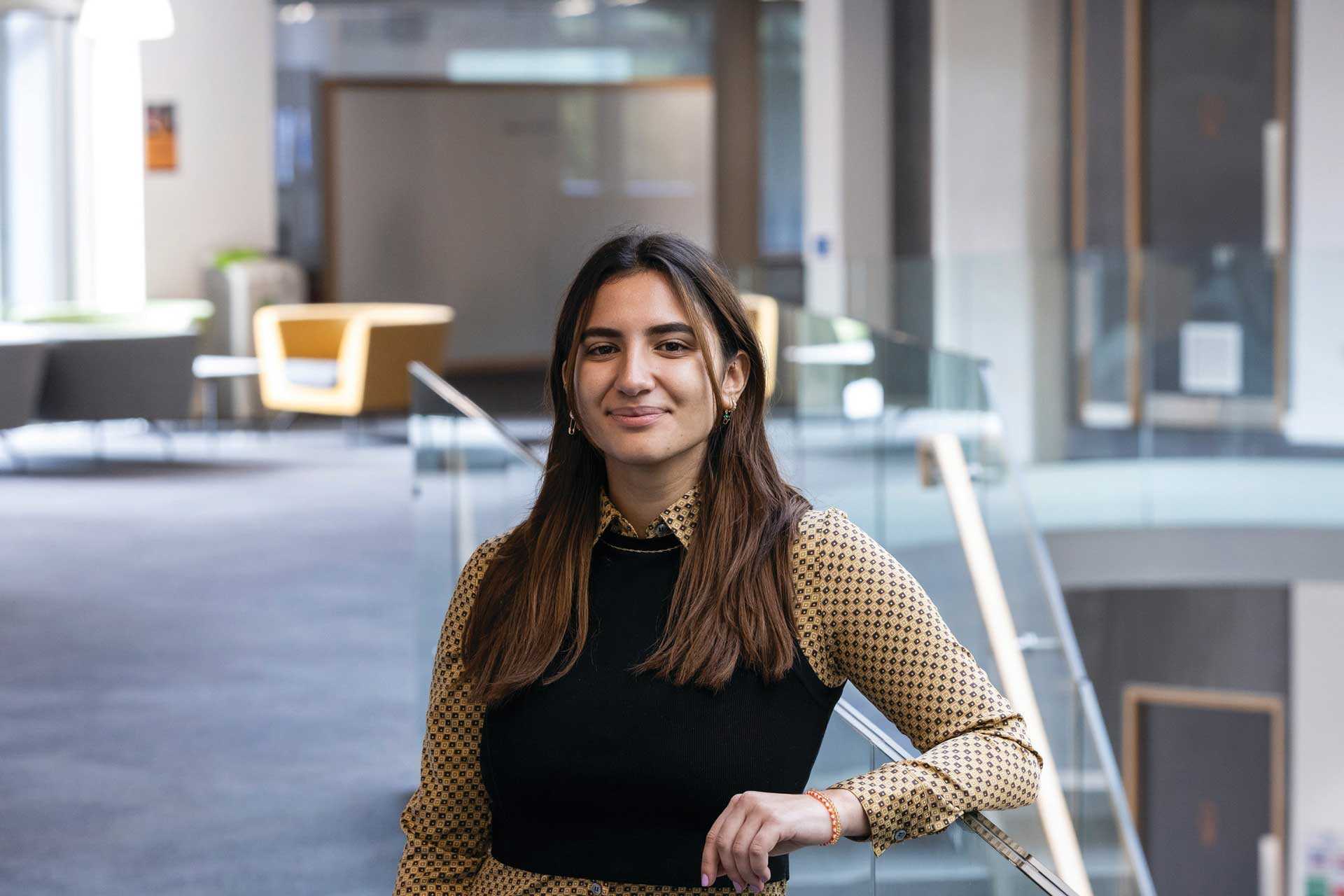
The 2024/25 annual tuition fees for this course are:
For details of when and how to pay fees and charges, please see our Student Finance Guide.
For students continuing on this programme, fees will increase year on year by no more than RPI + 3% in each academic year of study except where regulated.*
The University will assess your fee status as part of the application process. If you are uncertain about your fee status you may wish to seek advice from UKCISA before applying.
Fees for undergraduate students are £1,850.
Fees for undergraduate students are £1,385.
Students studying abroad for less than one academic year will pay full fees according to their fee status.
Find out more about accommodation and living costs, plus general additional costs that you may pay when studying at Kent.
Kent offers generous financial support schemes to assist eligible undergraduate students during their studies. See our funding page for more details.
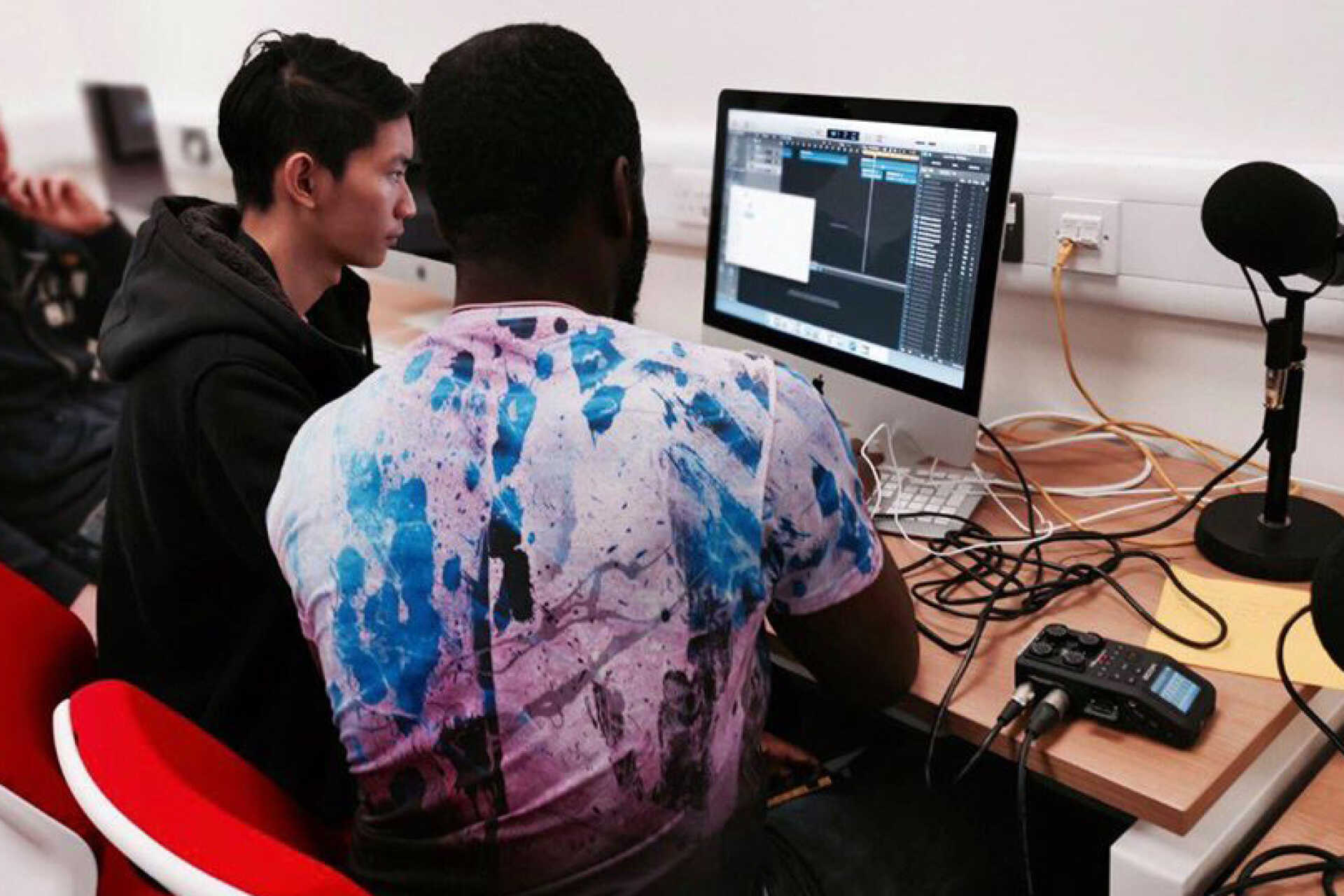
We have a range of subject-specific awards and scholarships for academic, sporting and musical achievement.
We welcome applications from students all around the world with a wide range of international qualifications.
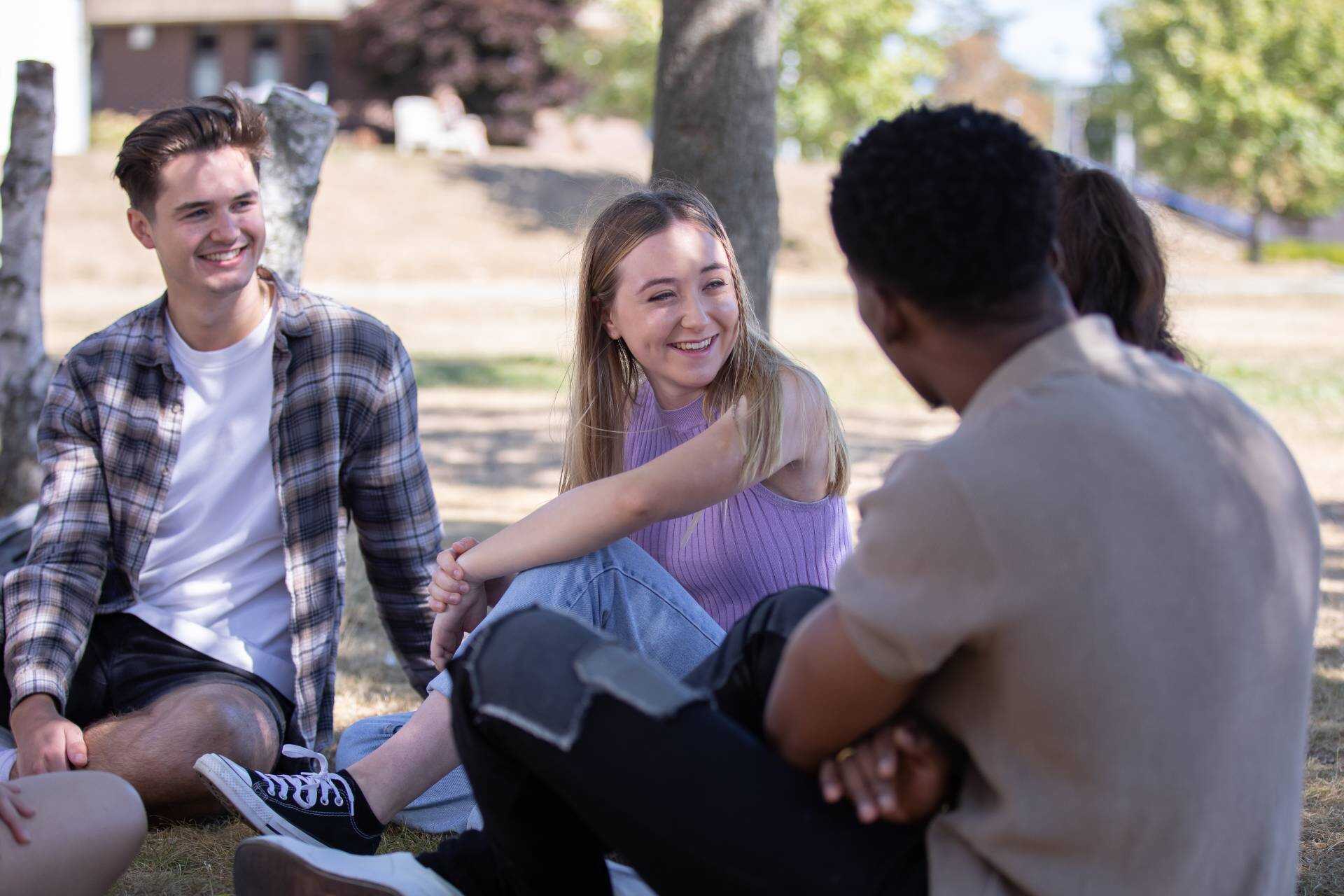
Student Life

Kent ranked top 50 in the The Complete University Guide 2023 and The Times Good University Guide 2023.
Kent Sport
Kent has risen 11 places in THE’s REF 2021 ranking, confirming us as a leading research university.

An unmissable part of your student experience.